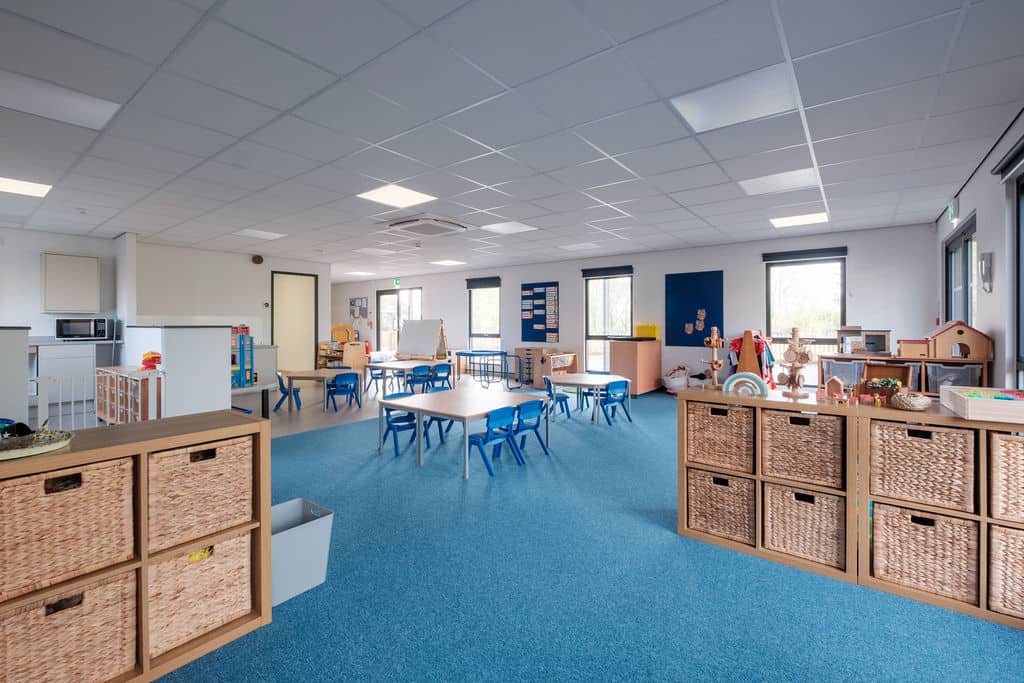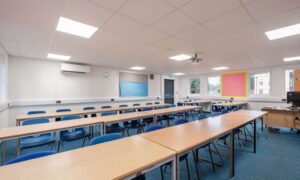Every child deserves a learning environment where they can thrive. For pupils with Special Educational Needs (SEN), this often requires spaces specifically tailored to their individual ways of learning.
Rather than relying solely on traditional construction methods, schools across the UK are increasingly turning to modular classrooms to create specialist spaces that meet diverse educational needs. These purpose-built, flexible environments offer the comfort, adaptability and accessibility needed to support pupils with a wide range of learning differences.
Creating the Right Environment for SEN Pupils
SEN provision covers a broad spectrum of needs – from physical disabilities and sensory impairments to autism spectrum conditions and specific learning difficulties. Traditional school buildings can struggle to accommodate these requirements without extensive and time-consuming alterations.
Modular classrooms, however, can be designed with inclusivity from the outset. Features such as wide doorways, quiet zones, accessible facilities, and customised lighting can be built in from day one. Schools can also specify layouts, acoustics and sensory-friendly materials to promote calm, focus and wellbeing.
What’s more, the flexible nature of modular buildings means they can be reconfigured or expanded in line with changing pupil numbers and evolving teaching methods – allowing schools to adapt quickly to new needs.
Faster, Less Disruptive Construction
One of the biggest concerns for schools planning new facilities is the potential disruption to pupils and staff. Traditional building projects are often noisy, intrusive and time-intensive – far from ideal in an active school environment.
In contrast, modular classrooms are constructed off-site in a controlled factory setting, then delivered and assembled on location. This significantly reduces on-site work and minimises disruption. In many cases, a new SEN-friendly classroom can be operational within weeks rather than months.
Unlike conventional construction, which may involve prolonged scaffolding, dust and logistical challenges, modular buildings typically arrive on-site as near-complete structures – ready to use with minimal interference to daily school life.
Designed with Comfort and Wellbeing in Mind
For many pupils with SEN, the classroom environment plays a crucial role in their comfort, focus and overall learning experience. Sensory sensitivities, for instance, can make traditional classrooms overwhelming.
Modular classrooms can be customised to provide a more supportive atmosphere, including features such as:
- Soundproofing – Minimises external noise, supporting pupils with auditory sensitivities.
- Adjustable lighting – Offers dimmable or natural light options to reduce sensory overload.
- Temperature control – Maintains a consistent indoor climate to aid comfort and concentration.
Well-designed classrooms don’t just look appealing – they can have a measurable impact on outcomes. Research shows that thoughtfully planned spaces can lead to:
- Improved academic performance – A calm, structured environment enhances learning.
- Reduced anxiety and stress – Pupils feel more at ease in comfortable surroundings.
- Better social interaction – Spaces that support emotional regulation help foster positive peer relationships.
Creating environments that meet SEN needs means fewer distractions, greater focus and a more positive learning experience for all.
Cost-Effective and Sustainable Solutions
Budget pressures are a reality for most schools, making affordability a top priority when expanding or improving SEN provision. Modular classrooms offer a cost-effective solution without compromising on quality or longevity.
Because they are built off-site using streamlined processes, modular buildings reduce waste, accelerate delivery and ensure more efficient use of funds.
They are also a more sustainable choice. Modern modular classrooms are often constructed using eco-friendly materials and can incorporate energy-efficient heating, cooling and insulation systems. This not only lowers the school’s carbon footprint but also creates a healthier indoor environment – particularly important for pupils with respiratory conditions or sensitivities.
Precision engineering allows for high levels of energy efficiency, and features such as solar panels, smart lighting and advanced ventilation systems can be easily integrated – helping schools set a strong example for environmental responsibility.
Future-Proofing SEN Provision
As awareness and understanding of SEN continues to grow, so too does the demand for tailored educational spaces. Modular classrooms provide a long-term solution that can evolve alongside the ever-changing landscape of education.
Their versatility makes them ideal for schools dealing with fluctuating pupil numbers or temporary accommodation needs. They can be moved, repurposed or expanded as required – making them a valuable long-term investment.
Additionally, as educational technology advances, modular classrooms can be upgraded with interactive displays, smart learning tools and assistive technologies – all without the need for disruptive and costly renovations.
SEN Modular Classrooms from Paragon Space
At Paragon Space, we specialise in high-quality modular classrooms designed to support inclusive learning for all pupils. If your school is looking to enhance its SEN provision in a practical, cost-effective and future-ready way, our team is here to help.
Get in touch today to discuss how we can support your school in creating the ideal environment for pupils with additional needs. From design to delivery, we’ll work with you to ensure every child has the space they need to succeed.

































